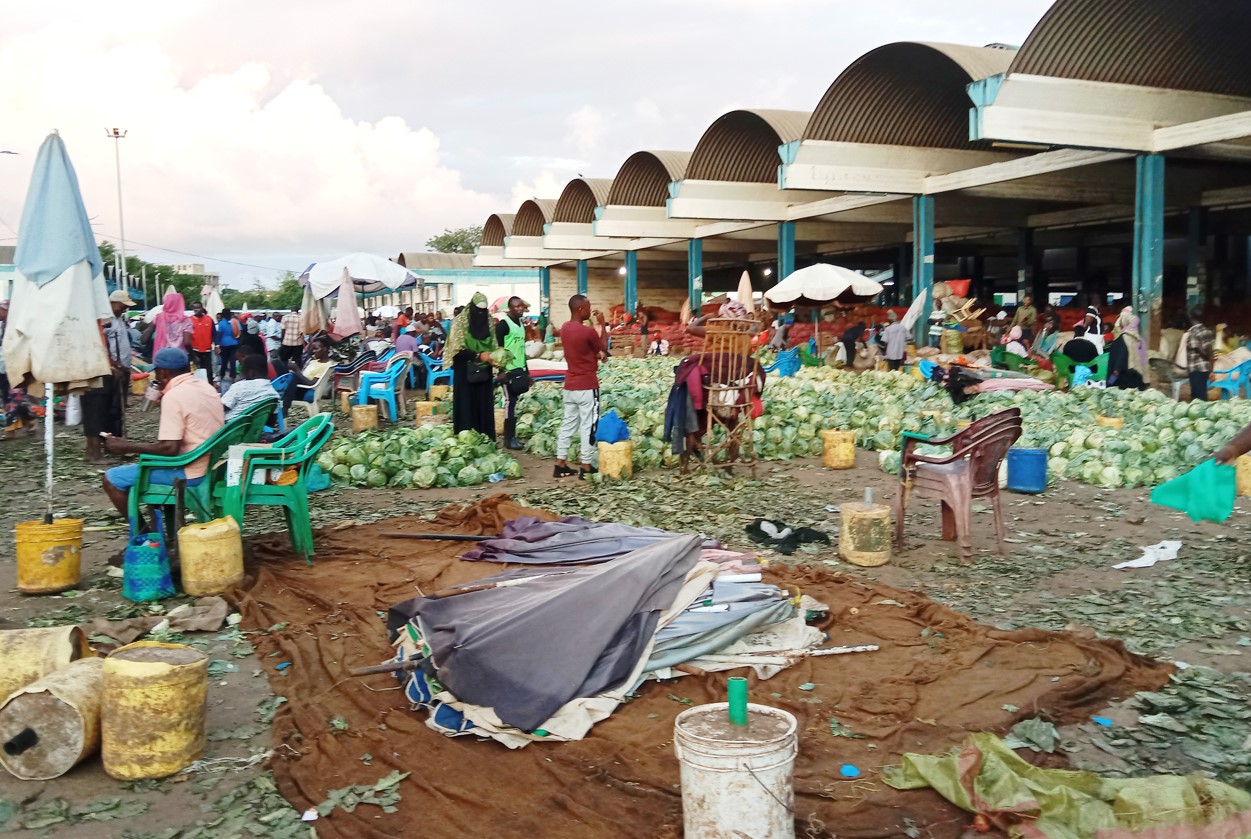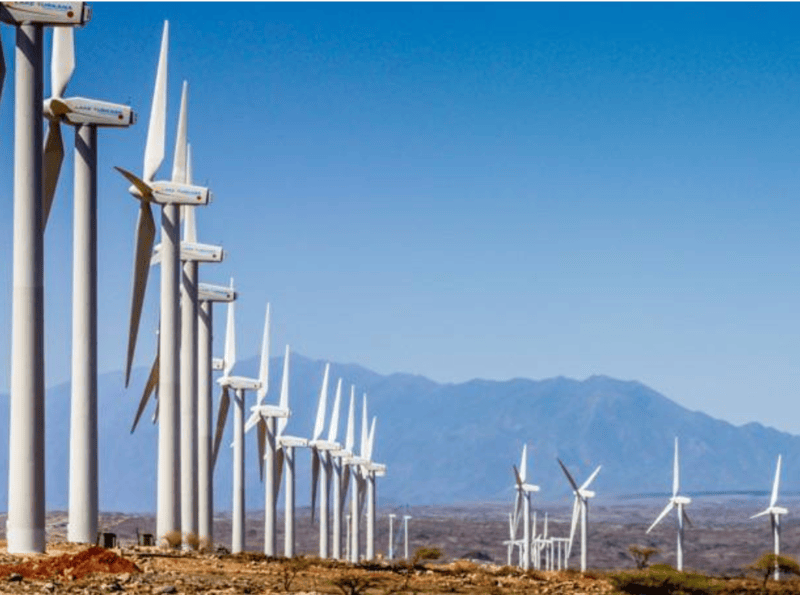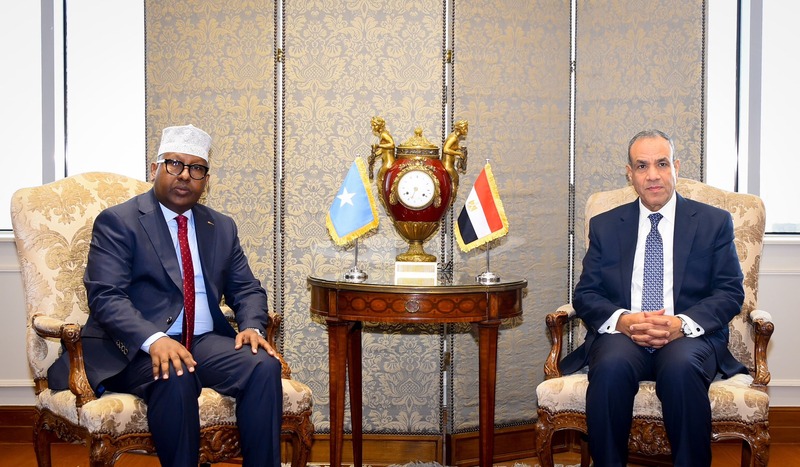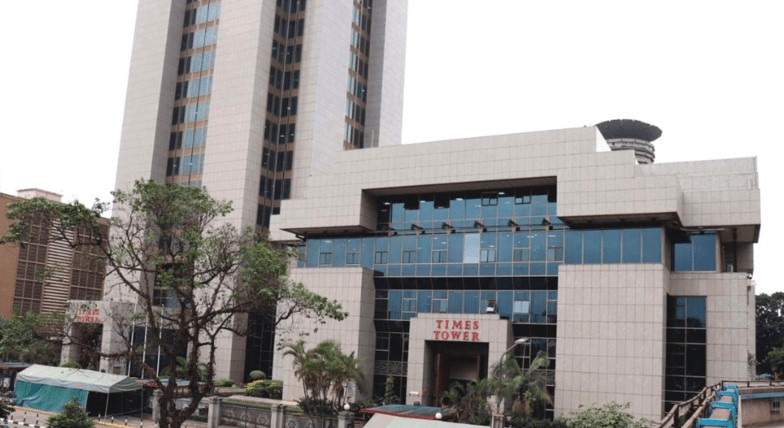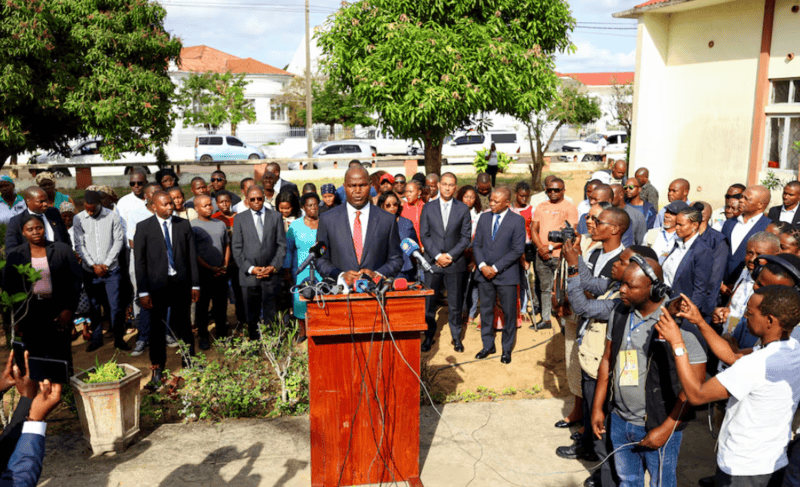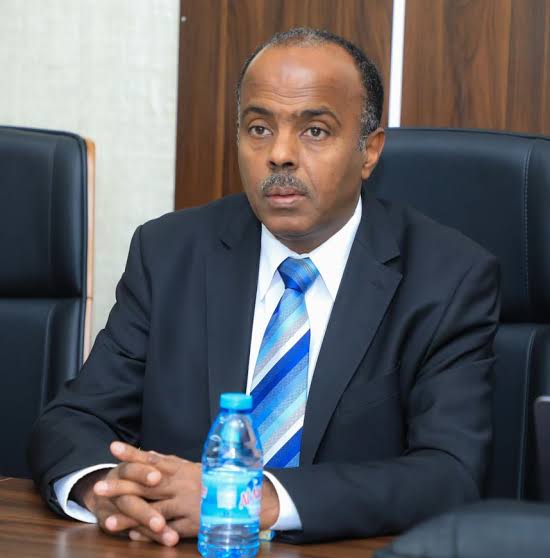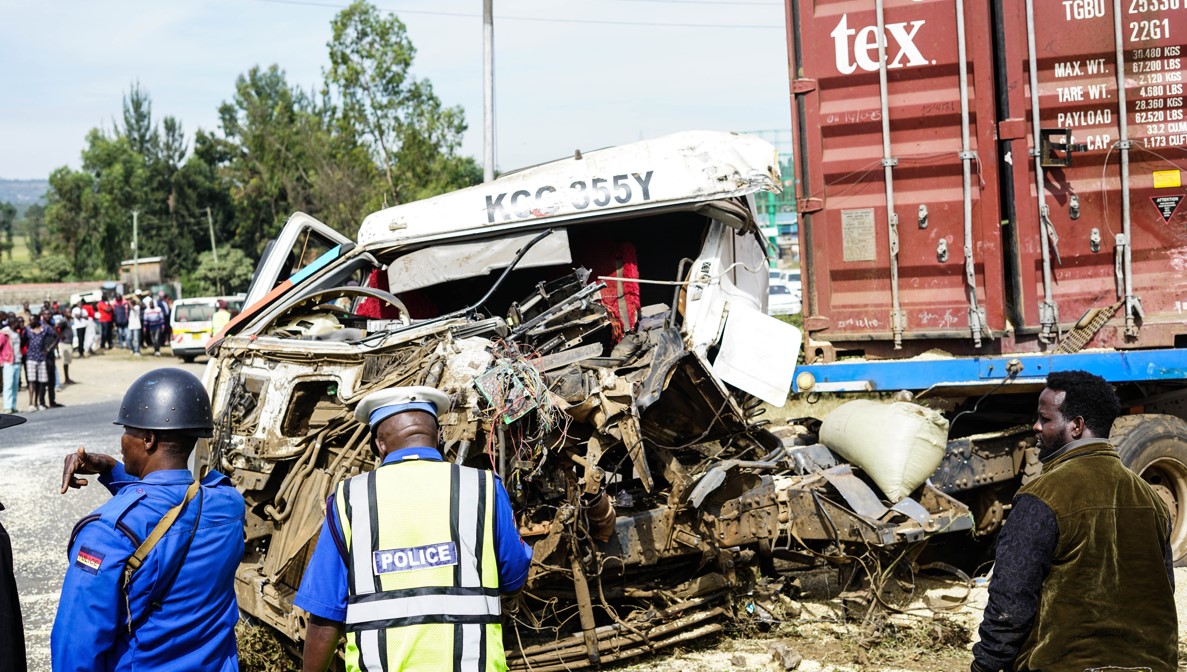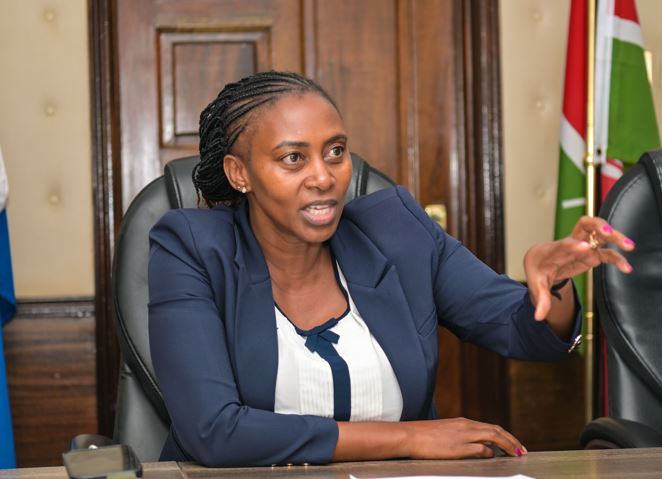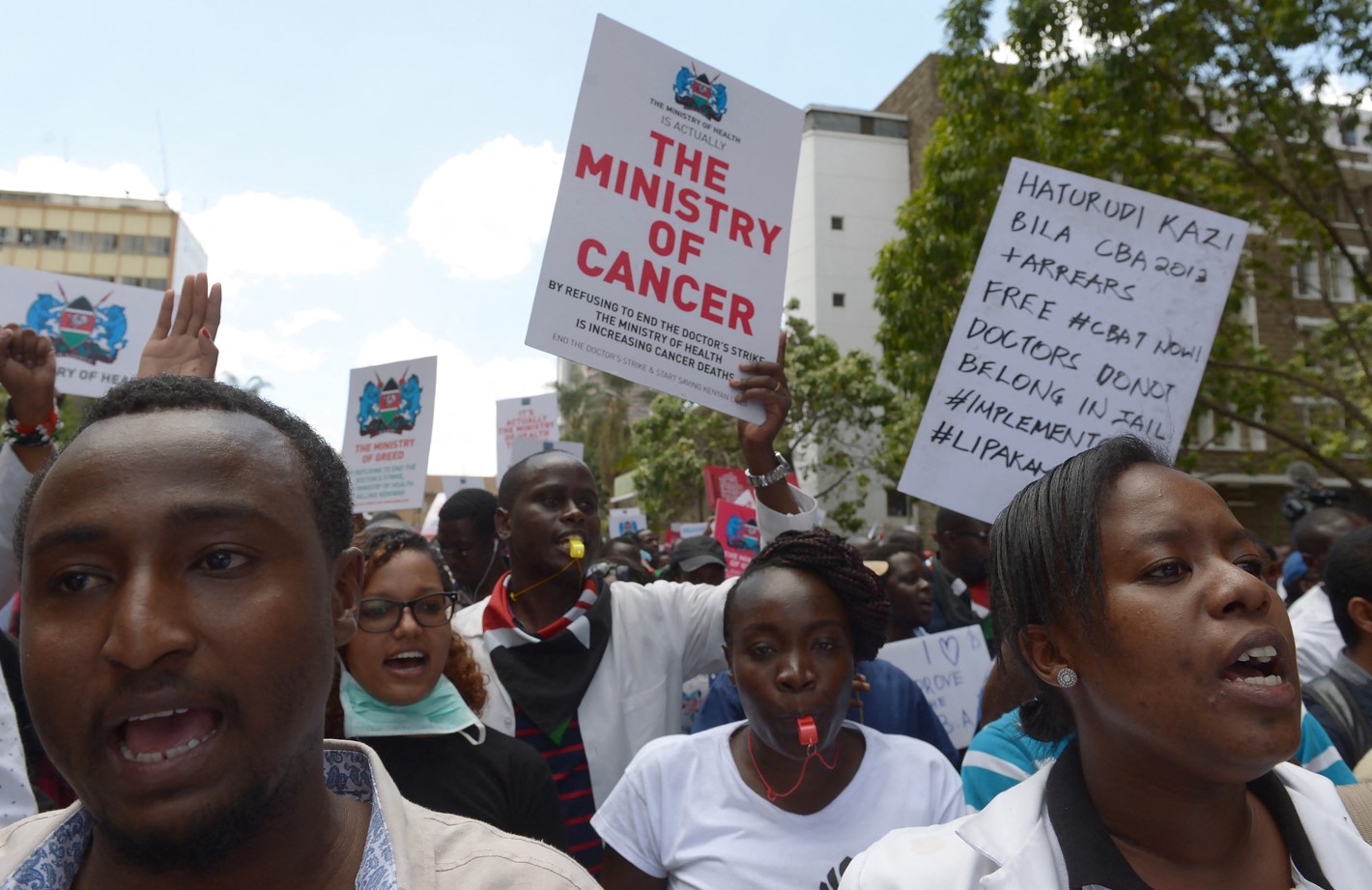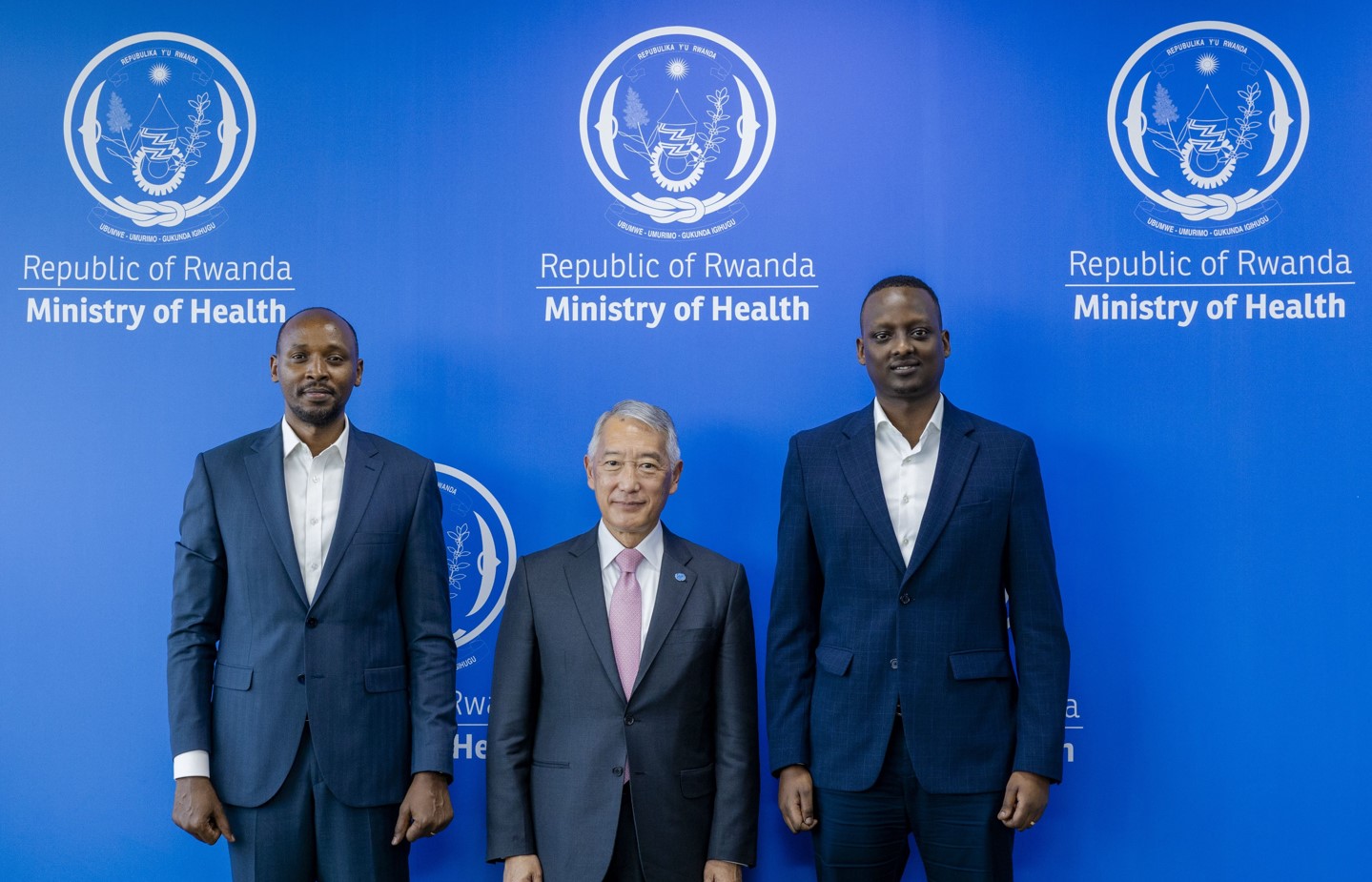Health ministry completes distribution of 2,061 vaccine storage units to counties
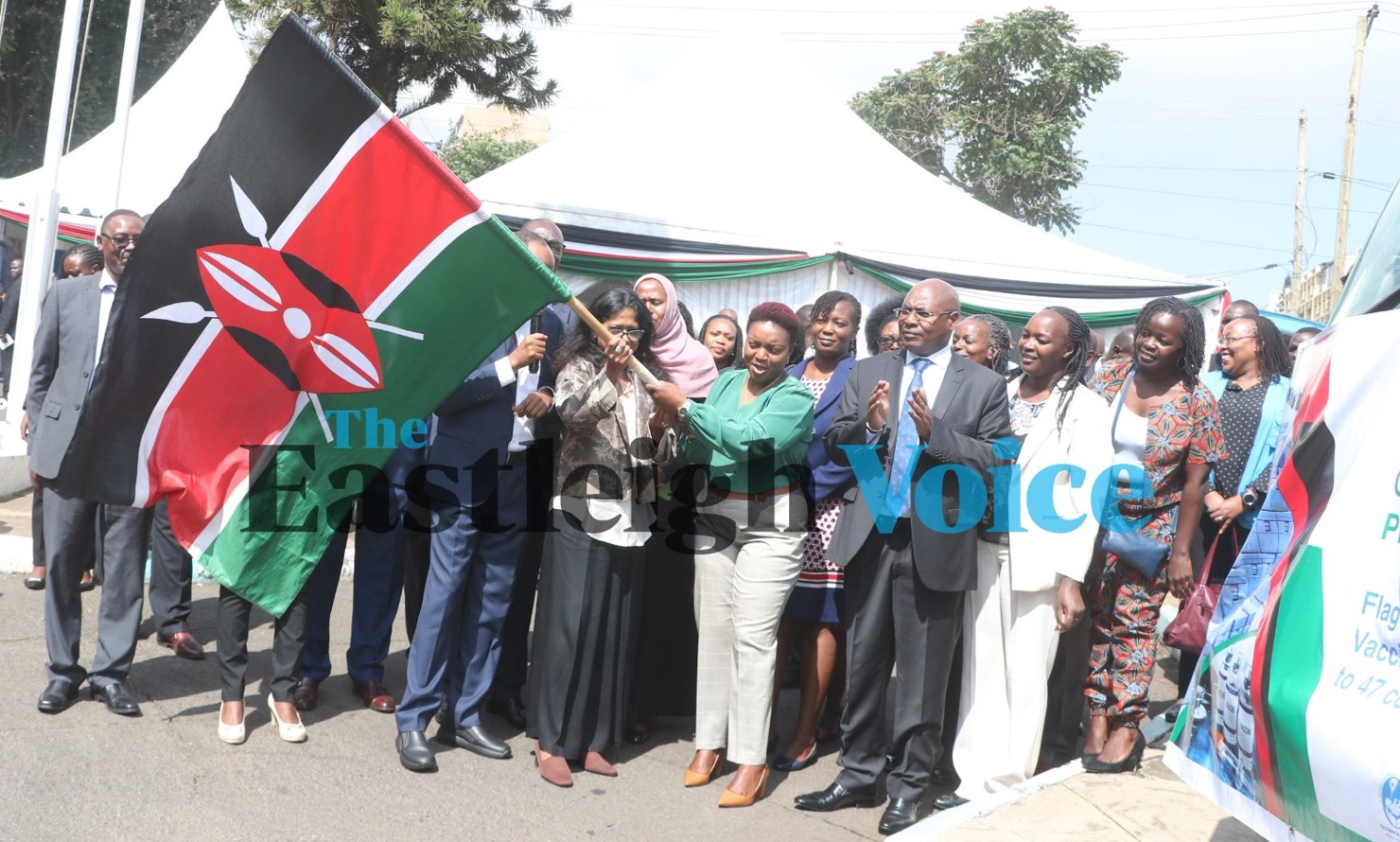
By Hanifa Adan |
The total value of the 2,061 cold chain items that are currently being installed is $7.09 million (Sh1.1 billion).
The government on Tuesday dispatched 195 cold chain equipment units to Kirinyaga, Nyeri, Embu and Meru counties, completing the distribution of a total of 2,061 units to all 47 counties in Kenya, as part of efforts to boost immunisation.
Kenya acquired the specialised vaccine storage equipment under the Cold Chain Equipment Optimization Program (CCEOP) grant from Gavi, the Vaccine Alliance, in partnership with the United Nations Children's Fund (UNICEF), the World Health Organization (WHO) and local development partners.
Keep reading
- Health spending to rise by 6% in 2025 amid unmet universal healthcare targets
- NGAO targets to register 12 million Kenyans for Universal Health Coverage – CS Kindiki
- Court declines to quash gazette notice establishing presidential task-force on health
- Kenyans lay bare frustrations as hospitals reject NHIF cards
The total value of the 2,061 cold chain items that are currently being installed is $7.09 million (Sh1.1 billion).
While flagging the equipment at Afya House in Nairobi, Health Cabinet Secretary Susan Nakhumicha noted that a 2016 national inventory showed that approximately one in five, of 18 per cent, of health facilities in Kenya did not have any cold chain equipment.
"The audit further revealed that 81 per cent of the facilities with some type of cold chain equipment did not meet performance, quality, and safety standards set for the immunisation supply chain in Kenya," she said, noting that the worrying data prompted the Health ministry and Gavi to collaborate to the supply of the cold chain equipment to health facilities and sub-county depots in the 47 counties.
Nakhumicha said Kenya has zero-dose children due to a lack of that equipment so its acquisition means community health promoters must ensure children get immunised according to their schedules.
According to the Government of Kenya Demographic Health Survey (KDHS 2022), 80 per cent of the children were fully vaccinated while three per cent had not received any doses despite efforts to boost rates.
Approximately 320,000 children younger than a year old in Kenya are partially vaccinated every year, out of whom approximately 48,000 are zero-dose. Most of these children live among the most marginalised communities that face multiple deprivations.
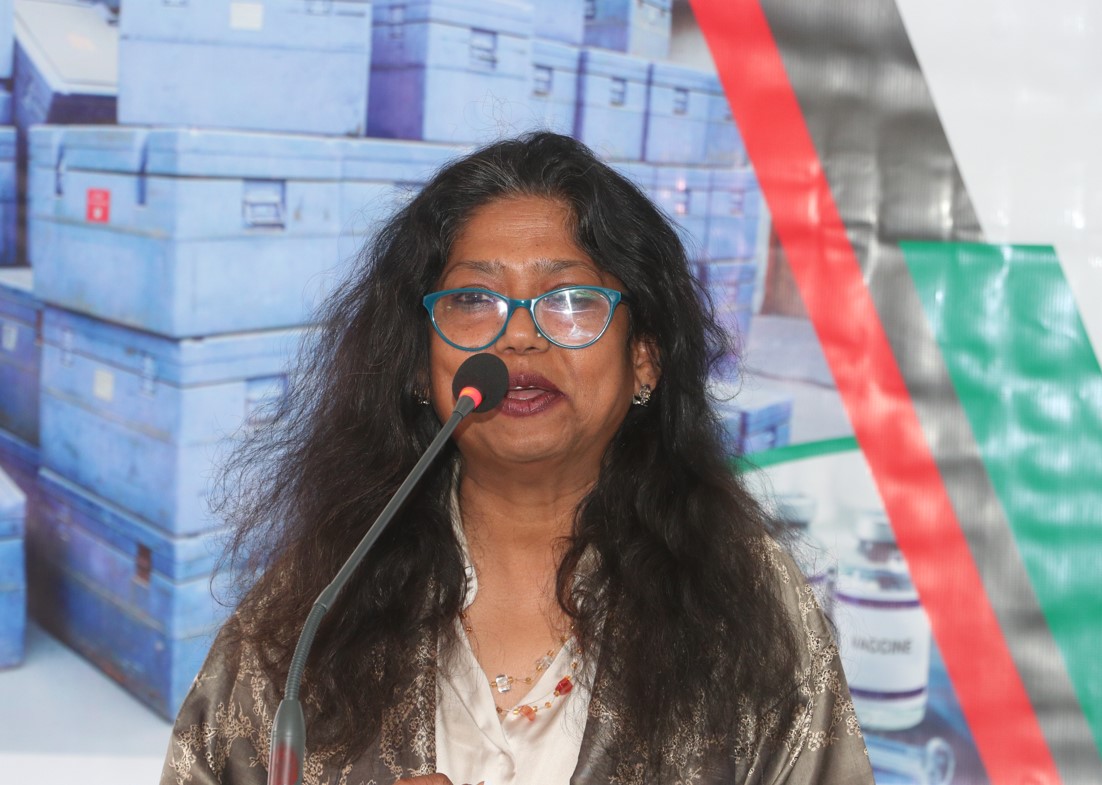 The Kenyan UNICEF Representative Shaheen Nilofer during the flag-off ceremony for specialised vaccine storage equipment to 47 counties at Afya House on March 5, 2024. (Photo: Justine Ondieki)
The Kenyan UNICEF Representative Shaheen Nilofer during the flag-off ceremony for specialised vaccine storage equipment to 47 counties at Afya House on March 5, 2024. (Photo: Justine Ondieki)
Wider reach
In her address, UNICEF Kenya Representative Shaheen Nilofer noted that the CCEOP project will expand access to immunisation services at 2,061 health facilities across the country, "enabling many more children, adolescent girls, and women in the most marginalised, vulnerable, and hard-to-reach communities to be reached with lifesaving vaccines".
"The offering of immunisation services will increase due to the availability of high quality, modern CCE up to the highest international standards, and with vaccines being brought closer to the community in a more reliable way," she said.
Tuesday's flagging off marked the completion of a process that began in December 2022.
Kenya was one of three pilot countries for the CCEOP, which was implemented in two phases.
Phase 1 saw the arrival of the first batch of 200 out of 2,061 equipment in December 2022. The distribution and installation of the 200 pieces of equipment were done during quarter one of 2023, with post-post installation inspection documenting the successful distribution, installation and commissioning of the units.
Phase 2 of the project then followed, ending Tuesday with the flagging off of the last consignment of 195 of the remaining 1,861 cold chain equipment items.
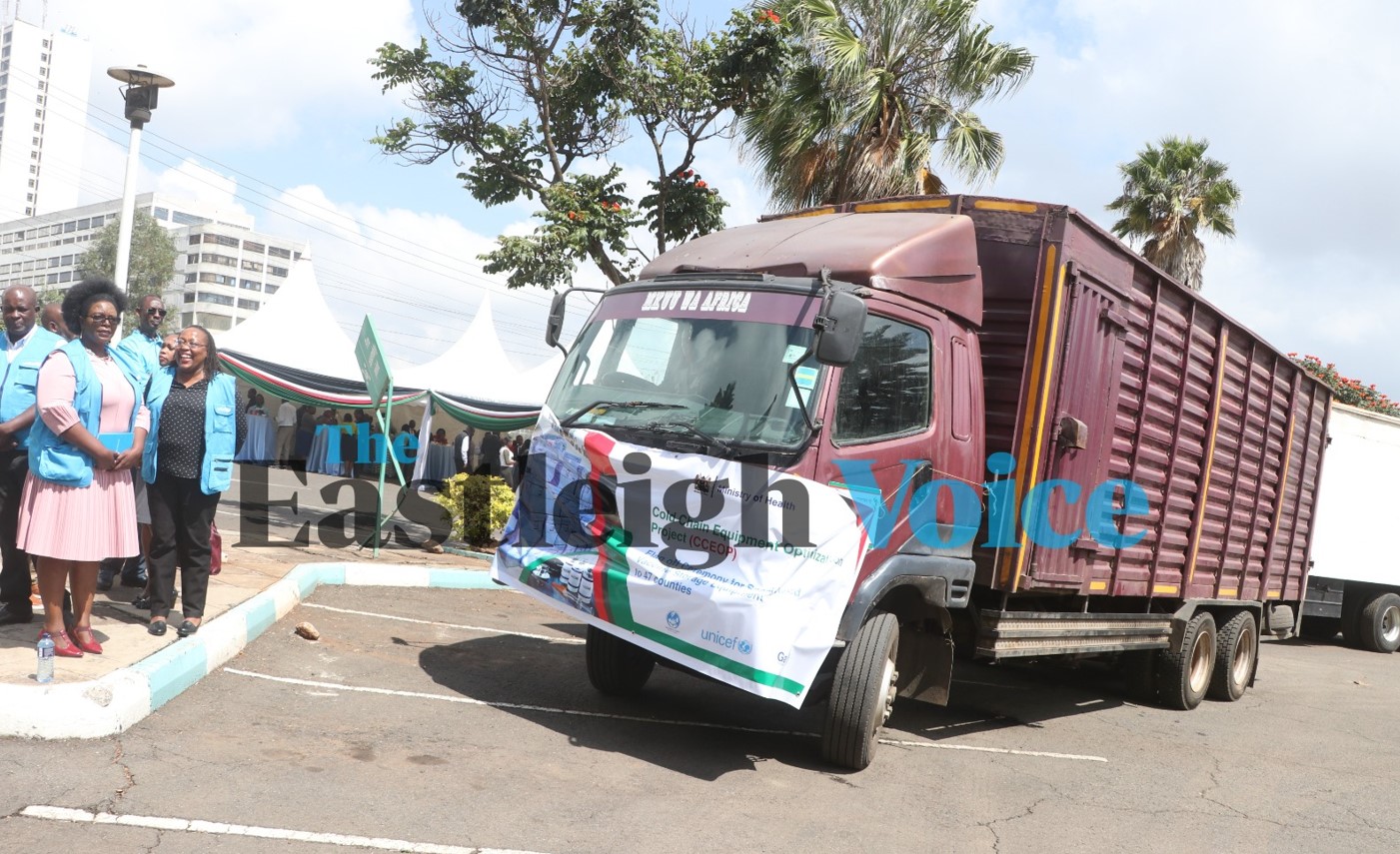 Specialised vaccine storage equipmentare dispatched to the 47 counties at Afya House, Nairobi, during a ceremony on March 5, 2024. (Photo: Justine Ondieki)
Specialised vaccine storage equipmentare dispatched to the 47 counties at Afya House, Nairobi, during a ceremony on March 5, 2024. (Photo: Justine Ondieki)
The 1,861 items arrived in Kenya in 42 large 40-foot containers between June and September 2023. The distribution commenced during the second half of October 2023 but was slowed by El Nino floods in November and December.
The process was fast-tracked in January and February 2024 and as of March 1, some 1,666 of the 1,861 units had been dispatched to 43 of the 47 counties, with Kirinyaga, Nyeri, Embu and Meru remaining.
The installation of all 1,861 units by local cold chain biomedical engineers is currently ongoing with technical support from UNICEF and the Ministry of Health's national vaccination programme. It is expected to be completed by April 2024.
Patrick Amonth, the acting director-general for health, noted that Kenya is sufficiently equipped to install the equipment and therefore does not need external support.
"We need to turn to our own domestic resource programmes as we transition," he said.
"The equipment will strengthen our health system and the implementation of universal health coverage. Immunisation is one of the key activities that takes place at the primary care level and the community level through in-reaches and outreach," he added.
Gavi established the CCEOP in 2015 as part of a strategy to strengthen vaccine supply chains and achieve better immunisation equity and coverage.
Reader comments
Follow Us and Stay Connected!
We'd love for you to join our community and stay updated with our latest stories and updates. Follow us on our social media channels and be part of the conversation!
Let's stay connected and keep the dialogue going!

